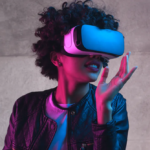The announcement of a second lockdown in the UK has once again left the workplace fractured for many of us. But for the industries that are exempt from lockdown, work must, to a certain extent, continue as normal. In fact, some industries are experiencing higher demand than ever before.
This is the case for the logistics industry which, in spite of challenging conditions, is making a rapid recovery due to global growth in e-commerce. And with talk of a Covid-19 vaccine on the way, the industry will soon be under more pressure. Efficiency will be of the utmost importance when transporting vaccines, which must be stored under highly regulated conditions and packed securely.
And, of course, this year has seen the healthcare sector being put under extraordinary pressure. The General Medical Council’s annual training survey found that three-quarters of trainee doctors have experienced disruption to their training due to the pandemic. It is vital that medics receive practical experience before they are placed in a real-life medical situation, but with equipment and resources in high demand, this is often not possible.
In these industries, as with many more, continuing training is key. Enterprise VR can help navigate further disruption and enable employees to establish a level of knowledge and ability before being put in dangerous or high-pressure situations.
The logistics industry is a perfect example of how VR can be used to deliver excellent training in high-stakes environments. This technology enables trainees to practise loading shipments as quickly and efficiently as possible, in a simulated environment where they are safe to make mistakes. This training is essential in order to increase the amount of cargo in a shipment and reduce freight forwarding costs. More crucially, if cargo is loaded incorrectly, it could cause a serious accident. Employing a VR approach could also significantly reduce training time which, with increasing demand for workers in this industry, could be extremely valuable.
VR can also play an important role in regulating training in the healthcare sector. Traditional training methods are often unable to replicate the high-stress conditions that medical professionals must work under. However, with highly detailed and realistic VR simulations, trainees can gain ‘hands-on’ experience with highly-technical procedures 24 hours a day, in a safe, controlled space. This technology also guarantees the consistency of training programmes, ensuring that all medics are trained to the same standard.
With all industries facing new challenges, it is easy for training to be delayed, but it is important that this doesn’t happen. VR is one way for companies to limit disruption to their training programmes, keeping their employees at the top of their game and bringing vital new workers into under-pressure industries.
Quelle:
Autor: Tom Symonds
https://www.linkedin.com/pulse/how-vr-can-help-limit-disruption-training-industries-tom-symonds/



